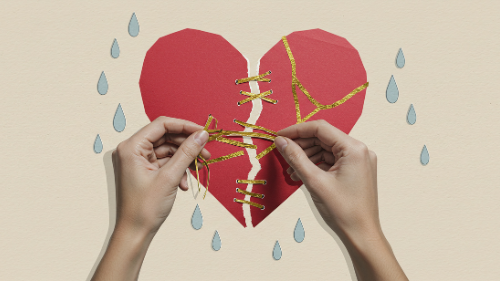The Emotional Grief No One Sees: How to Heal Without Feeling Guilty
Not all grief comes with flowers or funerals. There are losses that aren’t
announced and pains no one notices—but they still weigh heavily. That emptiness
you feel when someone leaves, when a stage of your life ends, or when life
changes without your consent—that’s also grief.
Emotional grief doesn’t only appear after death; it arises when you lose a
dream, a relationship, or a part of yourself. And often, people expect you to
move on quickly, to “get over it,” without understanding that some wounds can’t
be measured in time, only in depth.
When Crying
Feels Like a Luxury
Emotional grief is invisible, but its effects are real: difficulty
concentrating, constant fatigue, irritability, the desire to isolate yourself,
or to pretend everything is fine.
You don’t cry because you think you “should be over it by now,” or because you
don’t want to make others uncomfortable. So you stay silent. But what isn’t
expressed, stays.
In therapy, many people admit feeling guilty for still being sad. They believe
crying means giving up, or that remembering means going backward. But grief
isn’t weakness—it’s a form of love trying to find its place after everything
has changed.
Healing pain doesn’t mean forgetting—it means integrating it into your story.
Every tear is an unfinished conversation with the part of you that still
doesn’t understand why something ended.
How to
Heal Without Feeling Guilty
1.
Don’t minimize
what you feel, and don’t let others do it either. Your loss is yours
alone, and only you know what it truly means.
2.
There’s nothing
wrong with looking back. Missing someone or something is a way of
honoring its value. What hurts was once important.
3.
Grief has no
timeline. One day you feel you’ve moved forward, and the next, you
fall back. That’s okay. Healing isn’t linear.
4.
Talk about it.
Speaking helps you process. A therapist can accompany you through emotional
grief, helping you heal without repression—and without guilt for still feeling.



